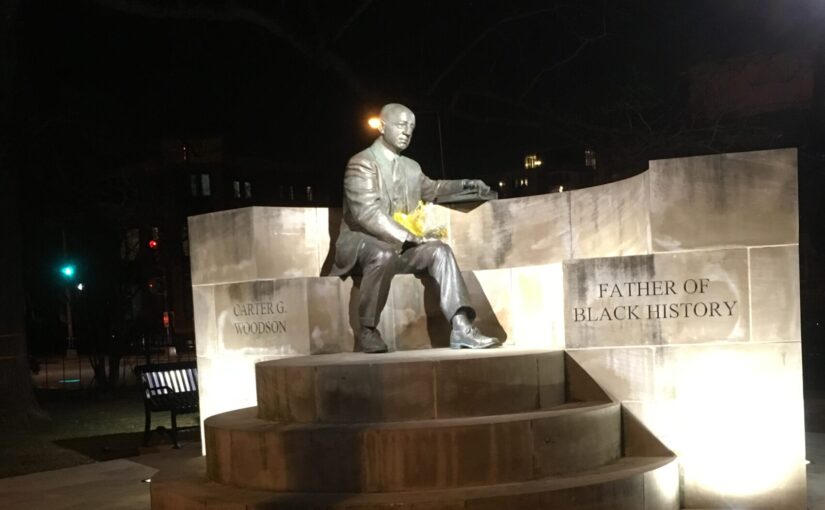This is a series regarding Shaw resident Carter G. Woodson’s book The Mis-Education of the Negro.
According to Ancestry DNA African American ancestors hail from Cameroon/Congo, Nigeria, and Ivory Coast/ Ghana, sub-Saharan parts of Africa. However, they didn’t have DNA tests in the 1930s, so Carter G. Woodson would not have known this. Even if he did, it probably would not have stopped him from being a booster for all of Africa.
So in this 3rd chapter Woodson is critical of the Eurocentric nature of history and other subjects being taught. His very valid points:
In geography the races were described in conformity with the program of the usual propaganda to engender in whites a race hate of the Negro, and in the Negroes contempt for themselves. A poet of distinction was selected to illustrate the physical features of the white race, a bedecked chief of a tribe those of the red a proud warrior the brown, a prince the yellow, and a savage with a ring in his nose the black the Negro, of course, stood at the foot of the social ladder.
However, there is a very practical problem. Literacy. Until someone literate shows up (usually to complain about you) your history is limited to the best guesses of the anthropologists. Failure to leave behind a written record of your culture, is your fault. Feel free to correct me in the comments, but we know what we know about the Norsemen from Christian monks complaining about raids and paganism. We know about the Britons from Romans complaining about a stupid island and the people on it. Mongols from the Chinese complaining about getting invaded. Not sure if the Indians of India had anything to say about the Mongols. So, short of the Egyptians there is not a whole lot to go on.
From literature the African was excluded altogether. He was not supposed to have expressed any thought worth knowing. The philosophy in the African proverbs and in the rich folklore of that continent was ignored to give preference to that developed on the distant shores of the Mediterranean. Most missionary teachers of the freedmen, like most men of our time, had never read the interesting books of travel in Africa, and had never heard of the Tarikh Es-Soudan.
I might have heard of Tarikh Es-Soudan in my African History class, but immediately forgot him once there was no chance of him being on the next test.
The “highly educated” Negroes do not like to hear anything uttered against this procedure because they make their living in this way, and they feel that they must defend the system. Few mis-educated Negroes ever act otherwise; and, if they so express themselves, they are easily crushed by the large majority to the contrary so that the procession may move on without interruption.
Yeah, I’m gonna defend the system with my highly educated Black self. As I mentioned earlier, part of the problem was literacy. Which meant someone literate got to tell the story, and the written word is a technology that can survive when something happens to the oral storytellers. Another problem, I do sympathize, is that Woodson makes claims about African achievement and seems to apply it to every part of Africa. Africa is a big continent with thousands of tribes and varying cultures and histories.
There is a romanticism in American Black culture with Africa. Spoken of in general with bits and pieces picked from those various and distinct cultures within the continent. However, it hardly resembles anything from any one place that a Nigerian-American or Cameroonian-American would recognize or bothers with.

